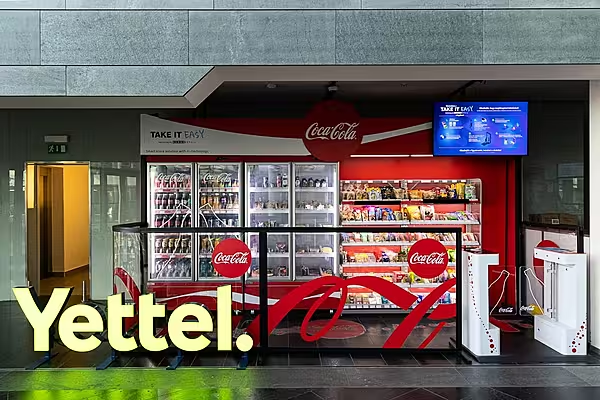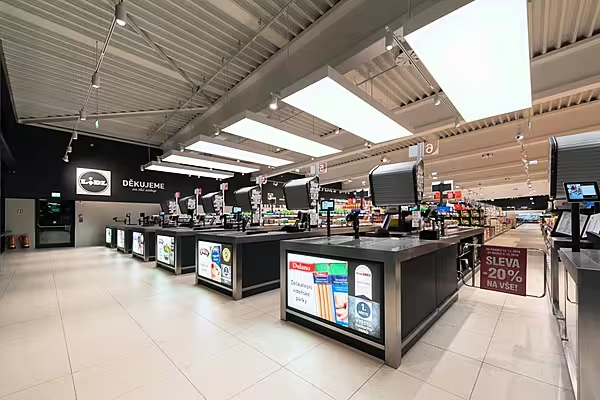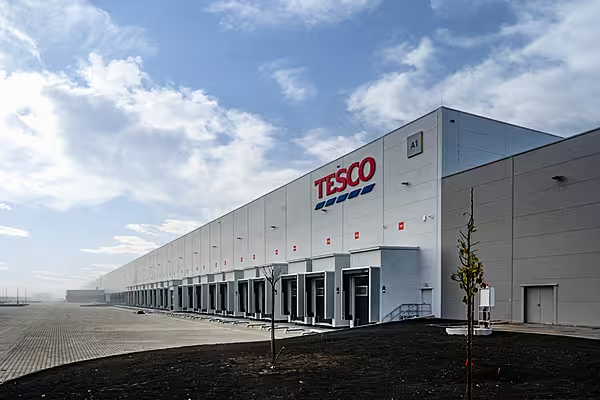Hungary’s MOL Group is aiming to develop a point of difference when it comes to the future of fuel retailing. Stephen Wynne-Jones spoke to its Executive Vice President, Consumer Services, Peter Ratatics. This article first appeared in ESM's November/December 2021 edition.
It was only a matter of time. As the global supply chain crisis continues to take hold, the effects are starting to spill over into one of the most valuable commodities: oil. With the price of crude coming in at $85 (€74) a barrel just before ESM went to press – its highest level since 2014 – consumers across Europe are starting to feel the effect at the petrol pumps.
For Hungarian fuel retailer MOL Group, which operates a network of nearly 2,000 service stations in Croatia, Slovakia, Bosnia, Czechia, Romania, Slovenia and its home market (as well as boasting a retail presence in Serbia and Montenegro), high fuel prices are not ideal as we head into the winter holiday period.
“It’s not good news for any fuel retailer, to be honest,” MOL’s Executive Vice President, Consumer Services, Peter Ratatics, tells ESM. “It can be good news for upstream players, but it’s certainly not good for the retail sector.”
MOL Group isn’t your typical fuel retailer. Since 2016, the group has engaged in a comprehensive restructuring of its operations, particularly its customer service division, which includes its retail business. At the start of this year, it unveiled its 2030 strategy, a plan to accelerate business transformation around green energy, digital consumer services, and sales channel diversification – the benefits of which are already emerging. The group’s Q3, announced in November, was its ‘strongest quarter ever’, and followed a similarly impressive Q2.
Fresh Corner
“We have to focus much more on the non-fuel part of the business,” says Ratatics of the group’s strategy. “In this sense, grocery retailing and gastronomy will be even more important for us. Currently, one third of our margin comes from the non-fuel part of the business, and margin growth is also significantly higher in non-fuel.”
At the core of the MOL Group retail offering is Fresh Corner, a company-owned convenience concept that recently hit the thousand-store mark. As the banner has evolved, so MOL Group has seen a “significant improvement in in-house capabilities”, says Ratatics, which, in his eyes, has given the group an advantage over its rivals.
“Many of our traditional core competitors have a different strategy, in the sense that they have teamed up with an established modern retailer like Tesco or Marks & Spencer,” he says. “That’s an easier approach, as they outsource all the complexity involved in non-fuel operations, such as product-sourcing, product development, category management, and so forth. We’ve chosen a longer, tougher path, but a more rewarding one.”
A Hybrid Retail Model
By maintaining control of its retail operations, MOL Group has not only been able to develop stores more in keeping with the direct needs of its customers – encapsulated in its Fresh Corner 2.0 strategy – but it has also been able to contemplate about what the future of forecourt retailing might entail.
“We have gained a lot of new capabilities during this transformation, in areas such as supplier negotiations, inventory management and supply chain management,” says Ratatics. “We operate a central warehouse, to which suppliers make deliveries, and we have to manage the secondary logistics and distribution in keeping with that – and that is exactly the sort of capability you need if you would like to develop a sophisticated e-commerce business.”
With this in mind, MOL Group sees itself playing an “Amazon-type role” in Central and Eastern Europe in the future, with its network of service stations potentially offering click-and-collect services, while leveraging the benefits of its loyalty programme, which boasts three million users and counting.
“Our network gives us a huge competitive advantage,” says Ratatics. “We are geographically well covered across Central and Eastern Europe, and for customers that are expecting an online delivery, they can drop by on the way home to pick it up, while also, hopefully, enjoying a cup of our delicious coffee.
“Once you have these sort of digital capabilities, you can understand what your customers’ interests are, and how to build out your best-possible offer in terms of predictive promotions.”
Future-Proofing The Business
In expanding its scope, MOL Group is also seeking to insulate itself against an existential threat facing the fuel retailing industry, albeit a necessary one for the future of the planet. A number of car manufacturers have pledged to phase out the production of traditional combustion engine vehicles over the coming decade, and the EU has proposed an effective ban on the sale of new petrol and diesel cars by 2035.
With the continued roll-out of its MOL Plugee electric vehicle-charging network across Central and Eastern Europe – it currently operates 170 charging stations across Hungary, Czechia, Slovakia, Slovenia, Croatia and Romania – Ratatics is keen for MOL Group to swim with the current, rather than against it.
“Let’s imagine that, in ten years’ time, all combustion engine cars will disappear, and there are only electric vehicles on the road,” he says. “Does that mean people are going to visit their families – their grandfathers and grandmothers – less? I think it will increase even more.
“So, with that in mind, what percentage of cars will be charged at home, and what percentage will require charging opportunities on the road? Based on our calculations, we believe we will need three times as many physical locations in order to deploy enough electric vehicle chargers. I think, with the growth of our network, we are well positioned for that.”
Growth Agenda
The group recently announced a number of acquisitions, including taking over the Slovenian operations of Austria’s OMV (encompassing a portfolio of 120 service stations), as well as acquiring 16 Lukoil sites in Slovakia. MOL Group aims to have 2,200 sites in its portfolio by the mid-part of the decade – a target that Ratatics believes is certainly achievable.
“Obviously, in this region, that will lead to greater consolidation of the market, and we have a few nice acquisition targets as well,” he says.
Some acquisitions are more strategic, offering a layer of expertise on top of the standard geographical benefits. In March, it announced the takeover of the Hungarian arm of the Marché International business from Mövenpick, which, in turn, will help to boost its gastronomic offering.
“I’m really proud of the Marché acquisition,” says Ratatics. “With this acquisition, we have acquired competency, operational procedures, and more than 100 employees – and we can utilise that knowledge in our highway locations in the region.”
As for the coming year, Ratatics is keen to “continue what we have started” and build competencies in the targeted growth areas for the business. “That includes increased standardisation, IT systems development, better marketing and promotional activities, sales capability development and, obviously, increased digitalisation, to both optimise the bottom line and improve the top line. That’s something that’s extremely important in our operation.”
© 2021 European Supermarket Magazine. Article by Stephen Wynne-Jones. For more Retail news, click here. Click subscribe to sign up to ESM: European Supermarket Magazine.
















